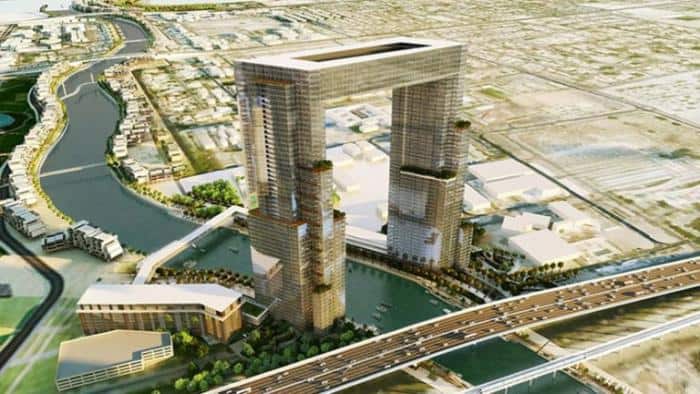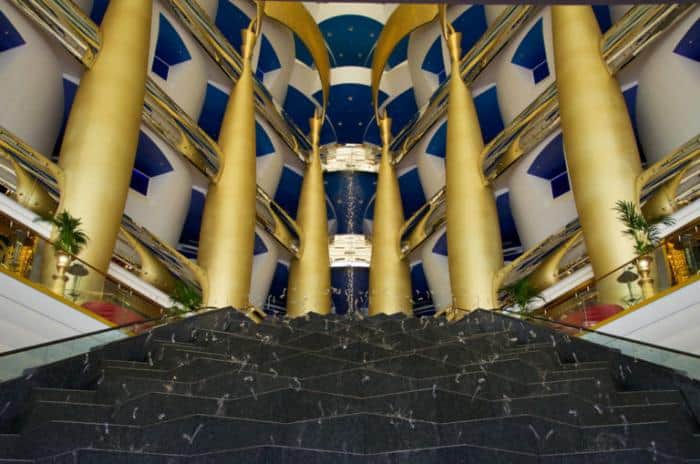GulfTech is the next big thing
I’ve just returned from the United Arab Emirates (UAE) where there were a number of events. Just a few weeks ago, I was in Bahrain, talking at a conference about FinTech as usual. What struck me is the interest and excitement about FinTech in both countries. There’s also a lot of competition between different cities in the region to be a recognised Financial Centre. Bearing in mind that none of these cities were on the map fifteen years ago, it’s quite incredible that today Dubai is the 18th largest Global Financial Centre, one place higher than Frankfurt; Abu Dhabi is 32nd on the list, squeezed in between Dublin and Amsterdam; Doha is number 40, above Stockholm and Jersey; and Bahrain is 58th, above Johannesburg and Copenhagen. Ten years ago, when the first Global Financial Centres Index was produced, Dubai was at number 25 in the charts, and Abu Dhabi, Doha and Bahrain didn’t even make the list.
I’ve just returned from the United Arab Emirates (UAE) where there were a number of events. Just a few weeks ago, I was in Bahrain, talking at a conference about FinTech as usual. What struck me is the interest and excitement about FinTech in both countries. There’s also a lot of competition between different cities in the region to be a recognised Financial Centre. Bearing in mind that none of these cities were on the map fifteen years ago, it’s quite incredible that today Dubai is the 18th largest Global Financial Centre, one place higher than Frankfurt; Abu Dhabi is 32nd on the list, squeezed in between Dublin and Amsterdam; Doha is number 40, above Stockholm and Jersey; and Bahrain is 58th, above Johannesburg and Copenhagen. Ten years ago, when the first Global Financial Centres Index was produced, Dubai was at number 25 in the charts, and Abu Dhabi, Doha and Bahrain didn’t even make the list.
“Build it and they will come”
The ambitions in this region are unlimited however and, like China, nothing stops innovation if the Crown Prince and government are behind it. For example, it stuns me that the Burj al Arab, the world’s first seven-star hotel, was built on sand (watch this documentary if you’re interested in its construction in the 1990s) and, whilst there, I was equally shocked to hear the background to the building of the Dubai Canal. Completed in just a couple of years, the canal was built to link the old city’s Deira Creek to the Business Bay, a distance of 3.2 kilometres. In building such a new waterway, the main highway had to be lifted and reset. That’s lifting up an 8-lane motorway above the water, whilst keeping the city active and working. A phenomenal construction projects, costing just a mere $750 million.
What also astounds me is that I’ve been coming to the region for fifteen years, and remember first visiting Dubai when it had just a few tall buildings and the Burj al Arab hotel. Now, there are 100s of tall buildings and the tallest in the world, the Burj Khalifa. I keep wondering who will occupy these buildings? They keep on building, and the attitude is *we build it and they will come.*Who will come? Oh, foreigners. 9 out of 10 people living in Dubai are expats. The same is true in Qatar, and most GCC (Gulf Cooperation Council) nations* see every other resident as being someone from overseas.
So what is happening here in the GCC is the recognition that fossil fuels are declining as both a resource and as a demand. Elon Musk and other visionaries are trying to move us to renewable resources such as solar power, so the GCC must find other industries to serve such as tourism, finance and airlines.
“Do whatever it takes”
You only have to look at the airlines here to see the change. I jump on a European or American airline and it feels old, as are its crew in many cases. I get an Etihad or Emirates flight, and it’s amazing seats, in-flight entertainment, food and service. As my friend describes it, it’s like getting out of a ten-year old battered taxi and entering a new limousine service. Very true.
This is a rich part of the world, and the services and buildings reflect its riches. I remember having a tour of the Burj al Arab and, at one point, was being shown the 18 carat gold leafed pillars, with all sorts of crystals and jewels.
I asked the guide how much the hotel cost to build. The answer was that no one knows. They only know that the project ran out of money half way through, and the Crown Prince just told them to do whatever it takes.
Which brings us back to finance. If the GCC countries want to be a major financial centre and FinTech hub, do you doubt that they will achieve it? I don’t and, after my recent visits to Abu Dhabi, Bahrain, Doha and Dubai, I am convinced that they will.
What I do doubt is the ability for four major cities to become four financial hubs, so each has to focus upon something different. After my conversations here, it appears that there are three focal points that would work from a FinTech point of view; WealthTech, IslamTech, SouthTech.
"Everything on a blockchain”
WealthTech makes sense as the region with a high concentration of Ultra High Net Worth Individuals. IslamTech is an opportunity for the GCC, and one they need to grasp. You would think that the GCC countries would lead in Islamic Finance, but they don’t. Kuala Lumpur and London take those honours. However, as a FinTech opportunity, building their presence as an Islamic FinTech centre, or IslamTech as I like to call it, makes sense. In particular, because Dubai wants to build everything on a blockchain, and transparency of products through a shared ledger service for Islamic investments makes absolute sense.
Finally, SouthTech is all about the unique position of these countries in linking China, India, Asia, Africa and South Americas. I call this SouthTech as it’s all about the growth and innovation economies in the Southern Hemisphere that are now growing positions globally, and the Financial Centres of the Middle East have a great opportunity to be the hub that links them all.
I’ll expand on these themes in a future blog but, for now, I recommend you read this report by Ernst & Young: The World Islamic Banking Competitiveness Report 2016. It’s a great insight into the region and the digital opportunities that are offered here for banks and start-ups.
Chris Skinner is Chair of the European networking forum: the Financial Services Club. He is best known as an independent commentator on Fintech through his blog, and as author of the best selling book Digital Bank and its new sequel ValueWeb.

Don’t miss out – Find out more today





